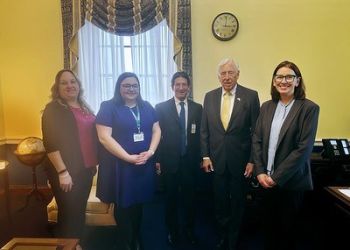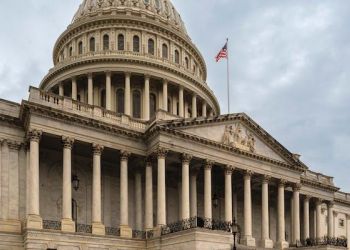In early 2022, the Food and Drug Administration (FDA) initiated an investigation into an Abbott Nutrition plant in Sturgis, Michigan, after determining the facility had manufactured powdered infant formula consumed by four infants who had been hospitalized with Cronobacter sakazakii, a rare bacterial infection that is particularly deadly for young babies. An FDA inspection of the facility in February found insanitary conditions and the agency warned consumers not to use certain products from the facility. Later that month, Abbott Nutrition initiated a voluntary recall of powdered infant formula products and shut down its plant in Sturgis, which was a major production facility. The recall and pause in production strained the infant formula supply chain, which was already facing challenges due to the COVID-19 pandemic and led to shortages across the country for months.
Congress held several hearings over the past year in response to the formula shortages, including one on March 28 in the House Committee on Oversight and Accountability Subcommittee on Health Care and Financial Services titled, “FDA Oversight Part 1: The Infant Formula Shortage.” Two witnesses testified and were questioned: Frank Yiannas, former FDA Deputy Commissioner for Food Policy, and Response; and Peter Lurie, President & Executive Director of the Center for Science in the Public Interest.
During opening remarks, Chairwoman Lisa McClain (R-MI) was critical of the FDA, saying that despite being responsible for 78 percent of the U.S. food supply, the agency was not prioritizing food safety. She specifically criticized FDA’s inaction to address potential infant formula supply chain disruptions prior to 2022 and the agency not inspecting the Sturgis plant since 2019 as factors that contributed to the formula shortage. Chairwoman McClain further criticized the FDA for waiting until January 2022 to begin an inspection of the Sturgis facility, despite an October 2021 whistleblower report raising food safety concerns there, and reports of infants falling ill. Chairwoman McClain said she was committed to examining FDA’s internal structure to improve its ability to keep food safe. Ranking Member Katie Porter (D-CA) expressed the need to figure out what went wrong in the infant formula shortage and how the issue can be fixed to ensure it doesn’t happen again, and emphasized that doing so would require holding both FDA and manufacturers accountable for producing safe products.
In his testimony, Mr. Yiannas, who was the Deputy Commissioner of Food Policy and Response until February 2023, outlined what he saw as the critical elements and factors that allowed the infant formula crisis to occur in the hopes that the subcommittee could focus on preventative solutions. Some of the causes Mr. Yiannis identified were inadequate public health surveillance for illnesses caused by Cronobacter sakazakii; FDA’s siloed organizational structure impeding a rapid response; FDA not taking whistleblower complaints seriously; and inadequate controls at Abbott Nutrition’s Sturgis facility. Mr. Yiannis said the FDA’s infant formula rule must be strengthened to improve preventive controls within the infant formula industry. He also offered eleven recommendations to the subcommittee including:
- Making Cronobacter sakazakii a nationally notifiable disease to improve nationwide surveillance;
- Enhancing FDA’s ability to detect signals of potential safety concerns with regulated products and act on them with a greater sense of urgency;
- Address the cultural, siloed, structural, and leadership issues in the FDA Food Program;
- Strengthen regulatory requirements for infant formula manufacturers and push the industry to set higher standards of care for themselves; and
- Support the development of more modern, data-driven food supply chain analytic platforms.
In his testimony, Mr. Lurie, who is also a former Associate Commissioner at the FDA, stated that much of the FDA’s response to the infant formula shortage was appropriate and drew from its experience working on drug shortages. He also highlighted that other parts of the government contributed to the response, including by invoking the Defense Production Act to give formula suppliers priority access to critical ingredients and Operation Fly Formula, which involved the Department of Defense flying in formula from abroad. However, Mr. Lurie also said the FDA failed to live up to standards to keep the food supply safe in some instances, including the long delay in elevating the whistleblower complaint. Mr. Lurie emphasized that better prevention and management of future crises requires at least three elements: authority, funding, and an effective organizational structure. He said that the Food and Drug Ominbus Reform Act provided FDA with some important new authorities, but the agency needs additional authorities to require manufacturers to notify it of all positive test results and to require more frequent environmental testing in production facilities. He echoed Mr. Yiannas’ recommendation that Cronobacter be made a notifiable illness. Mr. Lurie also urged Congress to provide more funding for the FDA’s foods program. Finally, Mr. Lurie offered support to the reorganization plan announced by FDA Commissioner Robert Califf in January, which among other changes elevates the food program to the Deputy Commissioner level and creates a new Office of Critical Foods.
Ranking Member Porter asked Mr. Yiannas if a major formula manufacturer would be required to tell the FDA if they found bacteria in their supply chain. Mr. Yiannis said that although a factory should notify the FDA, by law they are not required to. Ranking Member Porter also asked if FDA has resources to monitor supply; Mr. Yiannas stated FDA has been focused on food safety and nutrition, but since COVID-19 the agency realized it needs more intelligence and data on how companies and supply chains work. Representative Glenn Grothman (R-WI) continued by asking Mr. Yiannas how the structure of the FDA impacts the function of the agency’s food programs. Mr. Yiannas reiterated that FDA’s food safety authorities are decentralized throughout the agency, creating silos and a lack of clear leadership, hindering the flow of critical data and information.
The same day as the hearing, the FDA released an Immediate National Strategy to Increase the Resilience of the U.S. Infant Formula Market, which collects what FDA has observed about what led to the infant formula shortage, describes immediate actions taken to address the situation, and details what the agency plans to do to help further improve resiliency of the market. In her closing remarks, Chairwoman McClain expressed the need to continue to oversight of FDA’s restructuring proposal and national strategy, and invited FDA officials to appear in a follow up hearing on April 19.








